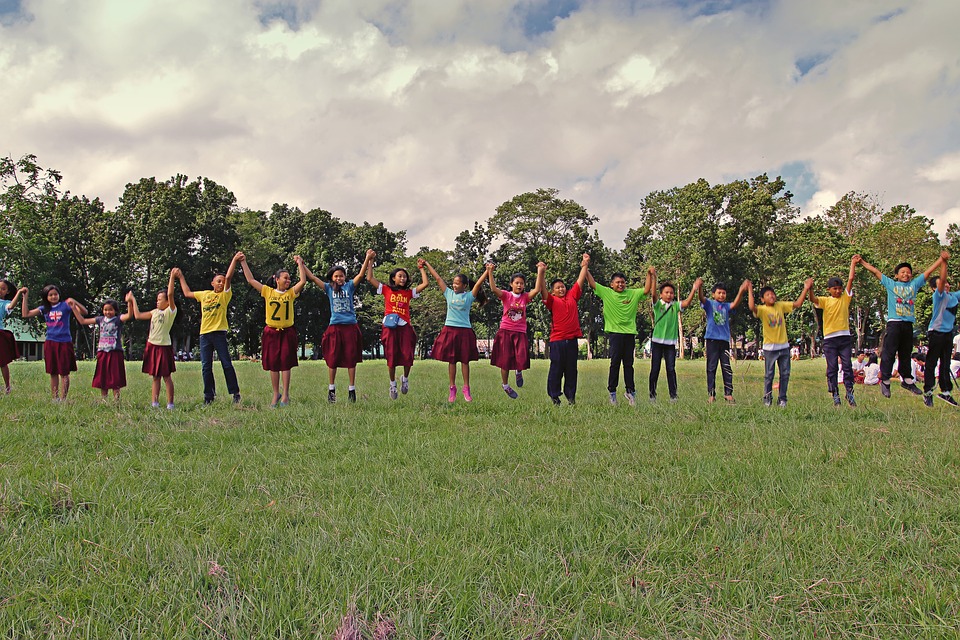Labor Day Fun
Labor Day … it’s the last official hurrah of the summer! Here are a few tips to make this one healthy and fun! (more…)
Labor Day … it’s the last official hurrah of the summer! Here are a few tips to make this one healthy and fun! (more…)

Parents feel responsible for the future well-being of their children. Whether that well-being is defined as physical, emotional, or psychological, we know that healthy children – who learn good habits at a young age – are more likely than not to develop into healthy adults. Interestingly enough, a focus on physical well-being can lead to beneficial patterns of behavior in both the emotional and psychological realms. Feeling good physically makes anyone feel better about themselves in general, and as a parent, helping your child stay active and engaged in activities other than watching television or playing video games is an important goal to try to achieve.
Recommendations Regarding Physical Activity for Children
The American Heart Association recommends that children over the age of 2 participate in at least 60 minutes of enjoyable, moderate-intensity physical activities every day. Those physical activities should be developmentally appropriate and varied so that your child enjoys the experience and feels successful.
If 60 minutes per day seem too difficult because of your work schedule or your childcare logistics (and there seems to be barely enough time for your child to even do his or her homework), try to provide at least two 30-minute periods or four 15-minute periods in which they can engage in vigorous activities appropriate to their age and stage of physical and emotional development.
Strategies to Increase Physical Activity in Children
A related strategy is to work on reducing sedentary time (e.g., watching television, playing computer video games or talking on the phone). First of all, try to actually track how much time your child spends now on the phone or siting in front of an electronic device. Then, set limits and begin to reduce the allotted time for these activities to create time in the day for being physically active.
Don’t forget to ask your child what kind of physical activity they enjoy. Remember, being active is supposed to be FUN! Being physically active doesn’t have to be hard. Riding bikes with friends, jumping rope, playing hopscotch, and running a relay around the park all qualify as meaningful physical activity. Any game that gets your child up and moving is a great way to stay physically active and make their heart, bones, and muscles strong.
Also, remember that parents should try to be role models for an active lifestyle and teach your children through example that you, too, value increased physical activity. Show them that you value the importance of daily exercise. Take the stairs or park the furthest distance from the entrance to the store so that you can more steps in your day. Take the family for a weekend hike, ride your bicycles together, walk to the store after school, sign up for a parent/child yoga class or just shoot hoops in the park. Any of these options will provide you both not only with exercise but also valuable time together. You will both benefit!
The results should be almost immediate. You will begin to notice that your child demonstrates improved psychological well-being, more self-confidence and higher self-esteem. Feeling good physically benefits your child’s overall health – a worthy goal for any parent and one that you can readily achieve.
Can you see your kids battling the risks of obesity throughout childhood and later on? Certainly not! But the sad reality is that one in three American kids are overweight or obese. Being a responsible parent, you don’t want your kid to be that “one.”
Therefore, in addition to serving them healthy food, encourage them to do daily exercise. Yes, exercise which can be any physical activity, including running, skipping, jumping, cycling or simple walking.
Add exercise to their daily routine and help them grow into healthy adults with strong bones, muscles and flexibility while keeping the threat of obesity at bay. So, don’t delay! Start motivating your kids to exercise daily or take part in sporting activities at their school.
For your convenience, have a look at the infographic given here to learn the benefits of exercises for your kids along with the various types they can enjoy.